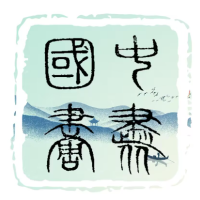邓维东,乙未年生于郴州,久寓西域,丹青所寄。新疆之地,风物富饶。丝路三分,南北天山之间,历史厚重,文化绵长。自然景致、人文胜景,姿态万千,诚画者心所向,各家于此自得其道。

邓氏自研习本土艺术以来,承时代之风,揽大千之景,胸怀宏阔,笔触微妙,以描绘西域山川之美为志,寓人文精神于笔端,寄时代兴盛于画里。其作品中,雄浑山水,神韵蕴藏,写意写实,相得益彰,映照西域之雄奇峻美。
邓维东心追丹青,笔耕不辍。世人多困于日常纷繁,尤于信息繁杂之时,事务冗长,节奏急促,然如何调适,全在一心。邓氏深悟其道,越繁忙,愈需拾笔。每至夜深,辄关门谢客,凝神挥毫,时至夜半,次日仍精神如常,履职不懈。今之时境,假期充裕,邓氏常驾车游历乌鲁木齐山川,行迹遍布,积素材于胸中。




邓维东生长于改革开放之际,对艺道别有会心。观四十年文化之变迁,国势既扬,民风既新,吸纳诸国文化之精髓,古今交融,承继有道。邓氏有言,改革开放为中华文化拓新境,促其交流,成其伟业,功在当代,利在千秋。
邓氏在新疆,肩多职务,事务繁难,皆需倾心而为。定一则:八时内务毕,无劳加班。于余时,常自留以艺,务事简洁。今世之人,常自谓忙,邓氏则信,真丹青之士,未有因忙而废画者。故常谆谆告诫弟子:“若汝因忙而疏于画,恐非真爱此道。”邓维东以为,当今画者,得遇盛世。昔时写生,纵大匠高师,亦徒步跋涉,风餐露宿,艰难备至。今则驾车随行,定位便利,创作之境,诚为优越。邓氏深信,佳作自能引发画者与观者共鸣,共赏其美。其心之所向,求雅俗共融,愿众人皆解画意,不欲陷于孤高之境,远离尘世。




邓维东于国画传承,所见颇深。昔年尝有质疑,谓程式化多而创新少,心生疑虑。然光阴几度,始悟反思乃成长之径,渐得传统奥妙。邓氏认为,国画之要,在于笔墨。笔墨,非唯根基,亦衡画者高下之准绳。须物象相依,方显神韵。此中天地无垠,需后人接力承续,方可推陈出新。
邓维东素抱一念,曰“慎笔立画,写心真情”。不曾妄图声名,但求一步一趋,笃行艺途。虽时有自谦,谓功力虽下,然终不如愿,深知艺事积淀为重,享其过程,胜于得失。



邓维东大半生栖于新疆,自叹“度年如日”,岁月如飞,而心中自得。其初斋号“点点斋”,寓意自谦,小室虽简,未尝妄想大名。今拟更名“八闲堂”,意在“画、字、书、诗、茶、曲、谈、友”八事。感人生须兼顾奋斗与享受,宜在文化滋养中,得心安理得之乐。


Deng Weidong: With Mountains and Rivers as His Ambition, He Imbues His Art with Humanistic Spirit
Deng Weidong, born in the Yiwei year in Chenzhou, has long resided in the western regions, where his heart and art are deeply rooted. Xinjiang, a land rich in natural beauty, boasts a third of the Silk Road running through the northern and southern Tianshan mountains. The region is steeped in history and culture, with diverse natural landscapes and cultural sites that provide endless inspiration for artists, each finding their own voice in this fertile ground.
Since Deng began studying local art, he has embraced the spirit of the times, capturing the vast landscapes with a broad vision and delicate touch. His ambition lies in depicting the beauty of the western mountains and rivers, infusing his brushstrokes with humanistic spirit and the vitality of the era. In his works, the grandeur of the landscapes and their inner spirit are evident, blending impressionistic and realistic styles to vividly portray the majestic beauty of the western regions.
Deng Weidong is deeply committed to painting, tirelessly honing his craft. While many are overwhelmed by daily tasks, especially in this age of information overload where duties are lengthy and fast-paced, Deng understands the importance of balance. The busier he is, the more he insists on picking up the brush. Late at night, he shuts his door, declines visitors, and focuses on his art, often working until the early hours, yet still meets the next day’s demands with full vigor. In this era of abundant leisure, Deng frequently drives through the mountains and valleys of Urumqi, gathering rich material for his work.
Deng Weidong grew up during the era of reform and opening-up, giving him a unique perspective on the path of art. Observing forty years of cultural transformation, he has seen the nation rise and the people's spirit renew, absorbing the essence of various global cultures while blending the ancient with the modern. Deng believes that reform and opening-up have opened new horizons for Chinese culture, fostering exchanges and achieving great feats, with benefits that will endure for generations.
In Xinjiang, Deng Weidong holds multiple roles, each demanding considerable time and effort. He follows a simple rule: complete tasks within eight hours, without extending the workday. He uses the remaining time for his art, maintaining simplicity in his duties. While many today claim to be busy, Deng believes that a true devotee of painting will never neglect their craft due to busyness. Thus, he often advises his students: "If you find yourself too busy to paint, perhaps you do not truly love this art."
Deng Weidong believes that contemporary artists are fortunate to live in a prosperous age. In the past, even the most renowned masters had to trek on foot, enduring hardships as they sketched from life. Today, artists can drive to their desired locations, with GPS making navigation effortless, creating an ideal environment for artistic creation. Deng is convinced that a great work can resonate with both the artist and the audience, allowing them to share in its beauty. His goal is to achieve a balance between refinement and accessibility, hoping that all can understand his art, without becoming isolated from the world.
Deng Weidong has deep insights into the inheritance of Chinese painting. In earlier years, he questioned the excessive formalism and lack of innovation, leading to doubts about cultural traditions. However, with time, he came to realize that reflection is part of growth, gradually uncovering the profound subtleties of tradition. Deng believes that the essence of Chinese painting lies in brushwork. Brushwork is not only the foundation but also the measure of an artist's skill. It must be intimately connected to the subject to reveal its true spirit. This vast domain requires future generations to continue the legacy, renewing and innovating as they go.
Deng Weidong holds a firm belief: "Be careful with your brush, and express your true emotions." He has never sought fame but has consistently pursued his artistic journey with steady steps. Though he occasionally humbles himself, acknowledging that his skill may not meet his aspirations, he understands that the accumulation of experience is what truly matters in art, and that the process is more valuable than the outcome.
Deng Weidong has spent most of his life in Xinjiang, describing his experience as "living years as if they were days," where time flies by contentedly. His original studio name, "Diandian Zhai," was a humble reference to a small room unfit for greatness. Now, he plans to rename it "Baxian Tang," symbolizing the eight leisurely pursuits of painting, calligraphy, reading, poetry, tea, music, conversation, and friendship. He believes that life should balance effort with enjoyment, finding peace and fulfillment through cultural enrichment.
责任编辑:苗君
